High school is a crucible. It can be at once wonderful and terrible, a paradise of joy and discovery and a battleground of spite and cruelty. It’s the claustrophobia—for four consecutive years, you spend an inordinately high percentage of your time stuffed into the same space, surrounded by the same people, chasing the same dream of escape. That pressure-cooker environment explains why every emotion, every experience, feels heightened: Every friendship is destined to last forever, every fight rends you in two, every romance is Shakespearean in scope. At times you wonder if you understand anything, but what you know for certain is that nobody understands you. And whenever something bad happens to you in high school, it doesn’t feel like a discrete event, a fleeting moment in the anthology of experiences that will shape you as a person. It feels like a cataclysm.
Perhaps I’m speaking only for myself. But I am also speaking for Hannah Baker, the stricken, haunted protagonist of Netflix’s sweeping, searing new drama, 13 Reasons Why. As played in a breakout performance by Katherine Langford, Hannah is the series’ focal point, its magnet for the emotional turbulence that so forcefully buffets the students of its nondescript suburban high school. Sad, sweet, hopeful, and scared, Hannah is in many ways a typical teenager—a drama queen to some, a wayward soul to others. She is the show’s lifeblood. She is also dead.
Yes, 13 Reasons Why is a show about teenage suicide. This hot-button topic instantly makes it grist for further study and analysis—it will undoubtedly serve as the subject of carefully reasoned think-pieces and as the target of hastily written hot takes. But to regard this series primarily for its sociological import is to diminish the enormity of its artistic impact, both as a persuasive character study and as a robust and dynamic piece of filmmaking. So while labeling 13 Reasons Why as a show about teenage suicide may be technically accurate, it is not strictly correct. It is more precise to deem it a show about one teenager’s suicide.
An industrious teenager at that. Adapted by Diana Son and Brian Yorkey from a book by Jay Asher (Selena Gomez served as executive producer), 13 Reasons Why sports a gripping if faintly implausible hook: Before her death, Hannah recorded a number—you can probably guess which number—of different cassette tapes, each elucidating one of the reasons that drove her to suicide. Each of those reasons is actually a person, specifically one of her classmates, and the tapes allow Hannah to essentially narrate the lead-up to her demise from beyond the grave. The series thus operates on two timelines: In the past, we follow Hannah and her interactions with her fellow students, all of which are now freighted with mortal significance. And in the present, we examine the fallout of Hannah’s death, as a seemingly normal and happy community struggles to understand why a seemingly normal and happy girl chose to turn a temporary problem into a permanent solution.
Our surrogate in this regard is Clay Jensen (Dylan Minnette, from Don’t Breathe), a soft-spoken and outwardly innocuous student. In the pilot, a puzzled Clay finds the tapes sitting on his front porch, plugs the first one into his father’s boom box (“Dad, where’s your radio thing?”), and stiffens in shock once he hears Hannah’s disembodied voice. Why did he receive these cassettes? What did he do to Hannah? Jesus, did she kill herself because of him? Flush with terror, Clay has no choice but to continue listening to the tapes, each of which spans a single episode; in the process, he discovers more about Hannah, their classmates, and himself.
The structure of 13 Reasons Why is undeniably schematic, but it raises some tantalizing questions, not least about how we watch TV in the age of the binge. Rather than presenting the series as a pure flashback, Son and Yorkey divide roughly half of each episode between past and present, mirroring Hannah’s persistent isolation and sadness in Clay’s mounting frustration and anger. To accomplish this, they saddle Clay with an extra heaping of angst that prevents him from listening to the tapes too quickly, as he finds absorbing Hannah’s anecdotes to be exceedingly painful. It’s a device that may strain credulity, but the show seems to recognize this—one of Clay’s classmates asks him what the hell’s taking him so long, while another confesses that he burned through all 13 tapes in a single, singularly depressing night. On a meta level, it’s possible to read Clay’s deliberate approach not as agonized hesitation but as prudent patience, a sort of willpower that viewers would be advised to extend to the series itself; spacing out each installment allows the individual episodes to sink in, amassing their own thematic weight rather than blurring together into a tumultuous compilation of sorrow and suffering.
But regardless of how you choose to watch 13 Reasons Why, you will be treated to some impressive filmmaking, as its dual-timeline setup allows its creators to engage in some genuinely startling visual creativity. Shepherded by an array of talented directors—including veterans of both cinema (Tom McCarthy, Gregg Araki, Carl Franklin) and television (Helen Shaver, Jessica Yu)—the series boldly and evocatively blends its time periods together. Its favorite maneuver is to present something from Hannah’s perspective, then gently glide the camera away from the action until it comes to rest on Clay, wherein we recognize that he’s just listened to Hannah’s description of the event we’ve just witnessed. (In a clever touch, Clay suffers a cut on his forehead shortly after receiving the tapes, allowing us to quickly discern which timeline we’re in without the need for clumsy labels.) It’s a voyeuristic style that draws you deeper into the show’s web of deception and paranoia.
You might think that this technique would eventually grow repetitive. It doesn’t. Every scene where Clay and Hannah unknowingly share the frame provides a frisson of melodrama, not to mention a pang of grief. It culminates in a brief sequence of stunning power, a sudden fantasy in which the living actually converse with the dead. (Naturally, this scene forms the backbone for the show’s trailer.) But 13 Reasons Why isn’t a one-trick pony. Son and Yorkey understand pacing and editing, not to mention music. (The show sports an indecently loaded soundtrack, including cuts by The Cure, Joy Division, Chromatics, Washed Out, and M83.) They cannily punctuate their inexorable narrative—at its core, this series is a death march—with bursts of jagged whimsy; a recurring insert of Clay sprinting down a darkened street in a panic functions as a brilliant piece of misdirection, while his troubling habit of hallucinations helps establish his fraying state of mind.
About Clay: It is initially tempting to view him as yet another diffident teen hero—smart, sensitive, aloof, and generally wiser than his immature peers. But he is also irritated and angry, and Minnette, in an astute and nimble performance, makes Clay sympathetic without turning him into a saint. A scene at the end of the fourth episode, in which Clay elects to turn the tables on one of Hannah’s tormentors, is a watershed for the series, forcing us to reckon with Clay’s own culpability.
This degree of nuance extends to most of the figures on the tapes, who are at first presented as stock archetypes in teen literature—the jock, the babe, the nerd, the weirdo—only to gradually become fully fleshed-out characters. This is especially true of Jessica (Alisha Boe, making waves), a popular looker who seems to vacillate between being Hannah’s best friend and her worst enemy. But it’s also the case for Justin (Brandon Flynn), a playboy with a difficult home life, and for Courtney (Michele Selene Ang), a composed honor student with her own deep-seated fears. And what to make of Tony (Christian Navarro), an apparent confidant of Clay’s who seems to be harboring his own secrets?
13 Reasons Why rightly keeps its focus on its troubled teens, but it also makes room for adults, who hover around its periphery with anxiety and confusion. It is strangely heartwarming, especially in a show so heavily suffused with death and tragedy, to watch grownup characters who care deeply about their children. The most forceful of these is Hannah’s mother, Olivia (a terrific Kate Walsh), who is overwhelmed by loss but who clings to the possibility that she can discover the hidden truth motivating Hannah’s action. Similarly affecting, but pitched in a different key, is Clay’s mother, Lainie (Amy Hargreaves, best known as Claire Danes’ sister on Homeland), a woman trying and failing to communicate with her increasingly withdrawn son. The two mothers find themselves on opposite sides of a legal battle—Lainie is the lawyer assigned to defend the school against Olivia’s wrongful death lawsuit—but they must both grapple with the horrible realization that their own child is a mystery to them.
And at the center of everything is Hannah. The young cast of 13 Reasons Why is uniformly excellent—together, they tap into the series’ operatic intensity without going over the top (it helps that most of them actually look like they could still be in high school)—but Langford is its glue. It’s a challenging part; she has to articulate Hannah’s escalating despair without turning her into a shrill avatar of victimhood. Rather than going big and broad, Langford retreats into silence and stillness, manifesting Hannah’s plight almost as a form of paralysis. In Langford’s desperate, searching eyes, we see two opposing pillars of adolescent dread: the fear of being invisible, and the misery of being noticed.
Despite its air of tension and intrigue, 13 Reasons Why isn’t a mystery; we know Hannah is dead, and we know how she died. But who was really responsible? Did Clay kill Hannah? Did Justin, or Jessica? Was she the casualty of a vicious caste system that preys on weakness and thrives on ridicule? Or did she simply make a rash, terrible, irreversible decision even though she lived in a stable home with parents who loved her, so that she only has herself to blame?
Even as 13 Reasons Why systematically and ruthlessly traces the path to Hannah’s suicide, it refuses to supply easy answers to these questions, to present her death as a logical puzzle that can somehow be solved. Similarly, while the show touches on a number of important social issues—including slut-shaming, victim-blaming, bullying, and assault (the word “rape” isn’t uttered aloud until late in the season, but it looms over the entire series like a poison cloud)—it never lapses into a screeching afterschool special. Hannah is a person, not a statistic, and 13 Reasons Why is a television show, not a term paper.
Much like the people it depicts, the show is imperfect. A handful of minor players lack definition, while the series ultimately locates a villain who seems too monochromatically cruel in a universe populated by such finely shaded characters. There are a few too many Six Feet Under-style fake-outs of Clay imagining himself doing something drastic, which eventually result in a boy-who-cried-wolf inurement. One supposed athlete who is being recruited by colleges in fact appears to be a laughably bad basketball player. And several late-season episodes containing disturbing events are preceded by a well-intentioned but ill-advised title card, ostensibly protecting viewers’ sensibilities but really just suspending a guillotine over their heads.
But even if 13 Reasons Why is unflinching in its ugliness, it is equally unyielding in its compassion, treating its characters with empathy and respect. This is the kind of show where, after you watch it, you want to call up your parents and tell them you love them, to hug your children and promise them that you’ll always be there for them. It will shake you up, and not just because it so convincingly traffics in violence and brutality. No, the real reason this series wrecks you is that it affords you the pleasure of meeting Hannah Baker, only to slowly and inevitably pull her away from you. That’s cruel, but in allowing us to spend time with Hannah—in tenderly excavating the roots of both her passion and her grief—the shows also gives us a gift. “I think we all let her down,” one character says, trying to make sense of a senseless world. 13 Reasons Why manages to pull off the opposite: It does Hannah proud.
Jeremy Beck is the editor-in-chief of MovieManifesto. He watches more movies and television than he probably should.

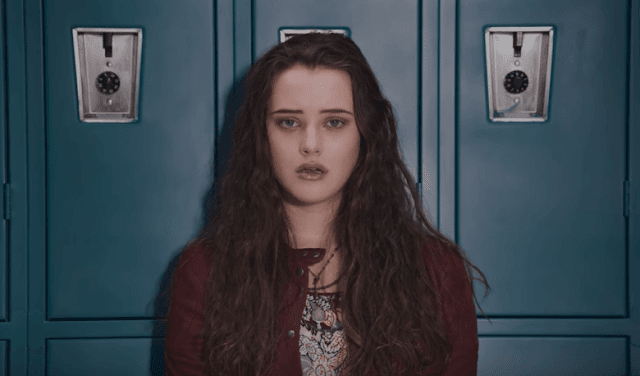
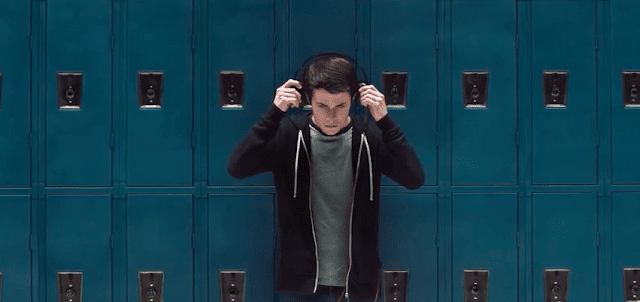
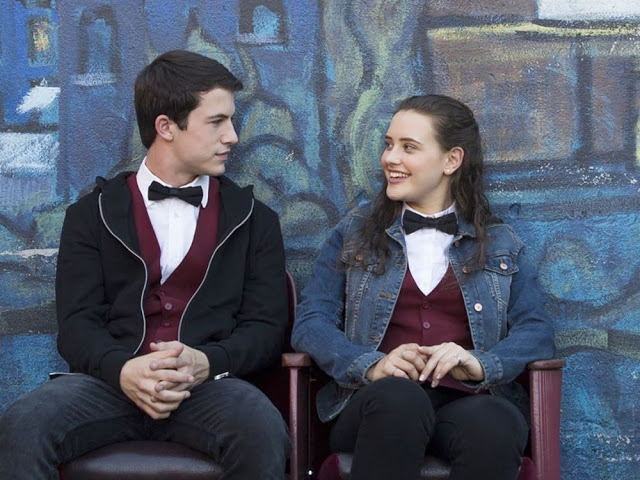
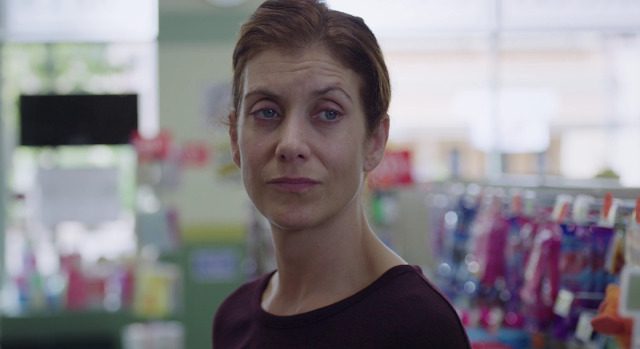
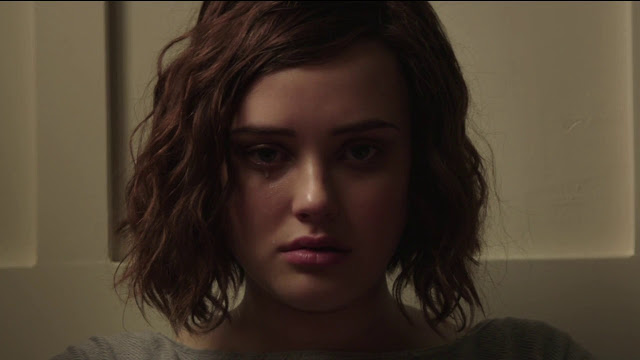
Well said. I enjoyed the show but hesitated to watch it at first because I was worried it would be too cliche. Luckily I was wrong. BTW I also noticed the cut… Let me know if your staff needs an addition. Let's not forget my impeccable analysis of The Arrival. �� -Sarah
Sadly, we can't afford you.